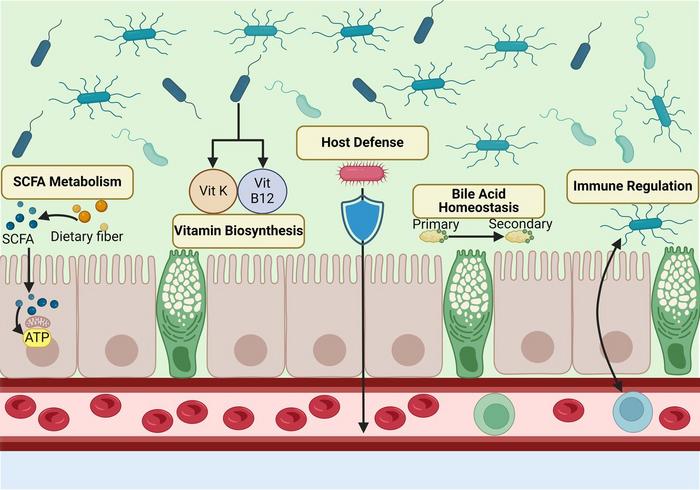New research reveals how the trillions of microorganisms living in our digestive system influence conditions ranging from gastrointestinal infections to cancer treatment outcomes. The findings, which compile evidence from recent clinical trials, highlight the potential for microbiome-based therapies to transform treatment approaches for several chronic diseases.
Journal: eGastroenterology, 2024, DOI: 10.1136/egastro-2024-100086 | Reading time: 4 minutes
From Infection to Immunity
The most compelling evidence comes from treating Clostridioides difficile infection (CDI), a severe bacterial infection that often recurs after antibiotic treatment. Fecal microbiota transplantation – transferring stool from healthy donors to patients – has shown remarkable success, reducing infection recurrence rates by up to 93%.
“The gut microbiome is increasingly recognized not only as a biomarker but as a target for therapeutic intervention,” explains Dr. Prosty, the study’s lead author. “These findings validate the microbiome’s role in disease development and pave the way for safe, non-invasive treatments that can enhance patient outcomes.”
Cancer and Inflammatory Disease
The microbiome’s influence extends beyond gut infections. Recent trials suggest that specific gut bacteria profiles can improve how patients respond to cancer immunotherapy, particularly for melanoma and kidney cancer. Patients with higher levels of certain bacteria, including Akkermansia muciniphila and Bifidobacterium, show better treatment outcomes.
For ulcerative colitis, a chronic inflammatory condition, microbiome therapies offer an alternative to traditional immunosuppressive treatments. Clinical trials show that restoring gut bacterial diversity can improve symptoms and induce remission.
Challenges and Future Directions
While promising for many conditions, microbiome research faces limitations. Results from animal studies don’t always translate to humans, as seen in obesity research where microbiome treatments haven’t yet shown significant weight loss effects. Factors like diet, age, and lifestyle also complicate the picture.
With two FDA-approved microbiome therapies now available and more in development, researchers are focusing on optimizing treatments and exploring personalized approaches based on individual microbiome profiles.
Glossary
- Microbiome: Collection of microorganisms living in the digestive system
- Fecal microbiota transplantation: Transfer of healthy donor stool to treat disease
- Immunotherapy: Treatment that helps the immune system fight disease
- Remission: Period when disease symptoms improve or disappear
Test Your Knowledge
1. What success rate has fecal transplantation shown in preventing CDI recurrence?
It can reduce recurrence rates by up to 93%.
2. Which bacteria are associated with better cancer immunotherapy outcomes?
Akkermansia muciniphila and Bifidobacterium.
3. For which condition have microbiome treatments shown limited success?
Obesity – clinical trials haven’t shown significant weight loss or BMI changes.
4. How many FDA-approved microbiome therapies currently exist?
Two therapies have been approved for treating CDI.
Enjoy this story? Subscribe to our newsletter at scienceblog.substack.com


